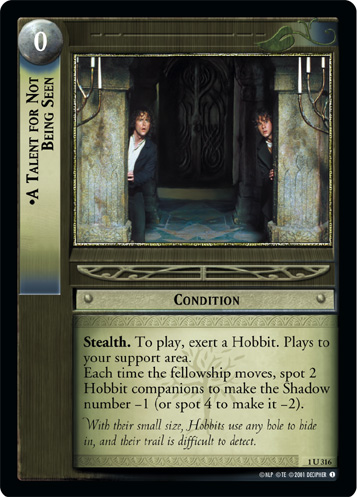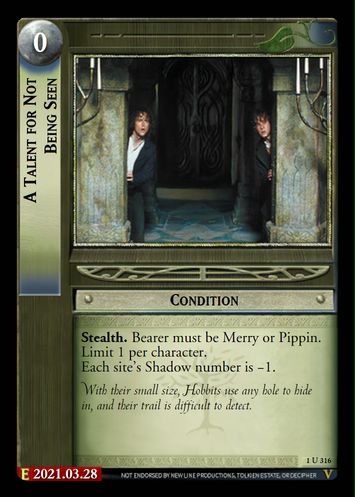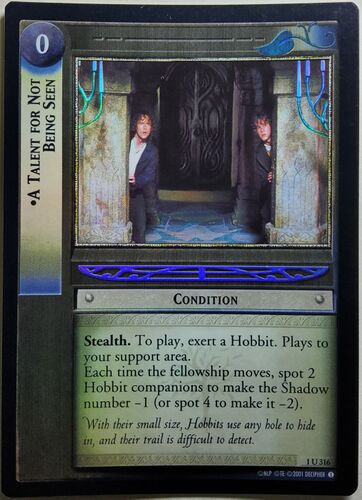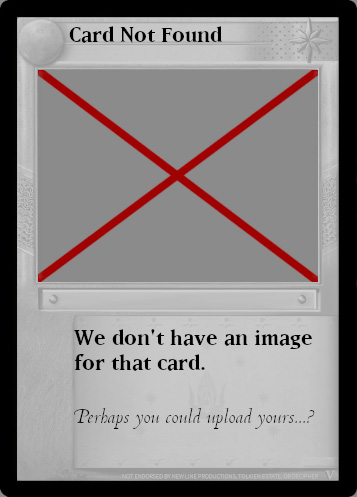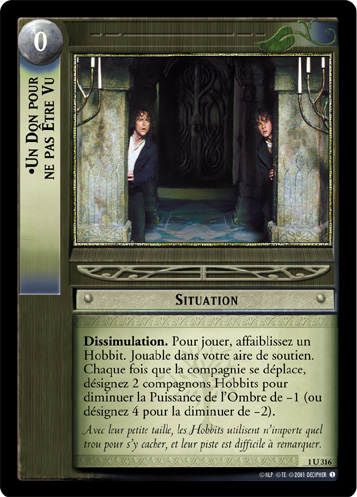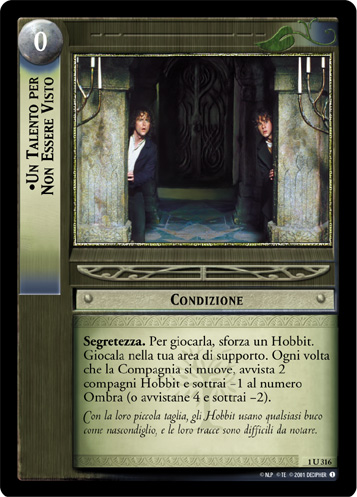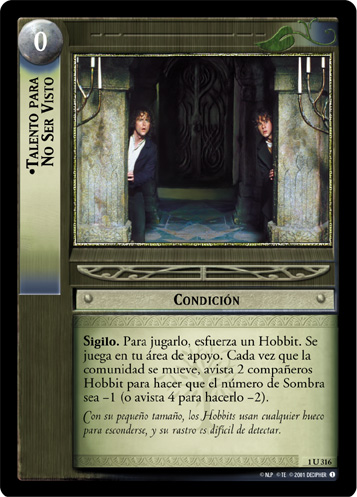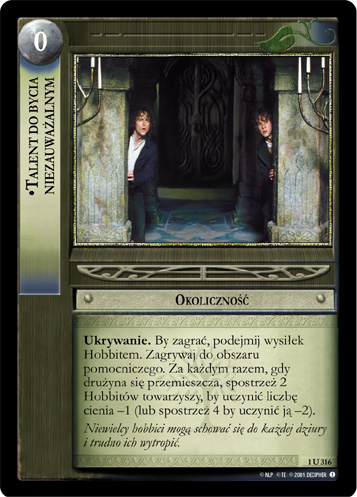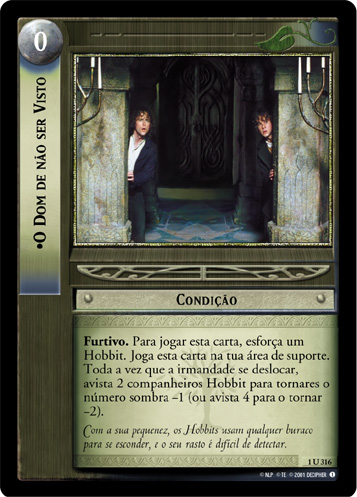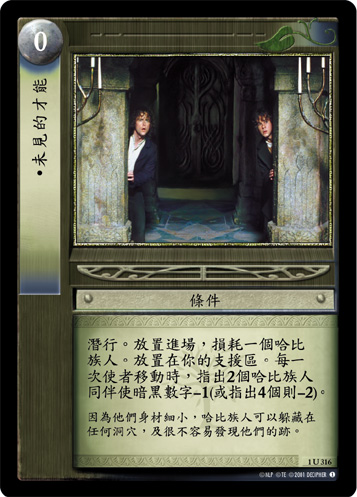| Talent wasn't X-ed until Shadows was released, so it was clearly more of a sleeper hit than some of the other more famous choke cards.
As Decipher points out, the card leaves very little room to work with, even when attempting to nerf it. The cost of the card itself could be increased, but then it runs the risk of never having an effect (if it's discarded before the twilight is "paid off"). The exertions could be increased, but again you might just be stabbing yourself in the foot (for even less reason than usual). And, as successfully argued by members of the community, the "spot 4 for -2" clause is among one of the only reasons to bother keeping Pippin alive in FOTR block, so it's got endangered species protection as well.
One of the things we don't want to do with the PC's errata is nerf cards to oblivion. These cards are already banned, and if they are nerfed to the point of never being used then we've wasted a bunch of time and effort just to end up right back where we started.
So, we had to rework the card slightly. It now attaches to either Merry or Pippin (losing its uniqueness in the process), and requires you to play 2 copies of the card to get the same full effect as before. Since it requires more copies of the card, the exertion cost is dropped to compensate.
And then of course, good ol' Pippin is enshrined as necessary to its use, restricting its ability to be used (or abused) by the various Expanded-era Hobbit companions.
Decipher Notes:
Any single type of function of the game can be looked at as falling somewhere on a scale. For example, take healing: on one end of the scale, you have a card which removes 1 wound, while on the other you might have a card which removes 20. Cost is just as important as scope in determining where on the scale a card falls, of course. A card that heals a wound for a twilight cost of 2 is lower on the scale than a card that heals a wound for a twilight cost of 1.
With A Talent For Not Being Seen, the scale in question is denying twilight tokens to the Shadow player. Talent has a very low cost, and over the course of the game it can deny a lot of twilight tokens. Thus its scope leaves us very little room to make cards any better than it without “exploding” this aspect of the game. At the same time, its cost is so low that it leaves us very little room to make cards of lower scope than it – there’s not much lower the cost for such cards can get. It’s sort of a big, rotting tree in the middle of the “twilight denial” acreage. With very limited possibilities for building around it, it had to be torn down to make space for the house we intend to build on the land.
For those who feel I’ve stretched my analogy a bit thin (or who draw an unpleasant comparison with Saruman uprooting the forest near Isengard), let me say it another, perhaps simpler way: Talent has been a card near the edge of “trouble” for some time, and with recent efforts to increase the strength of other aspects of the Hobbit culture, it was judged too powerful to remain in the environment.
| 